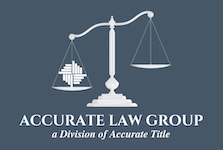When listing listings, home owners and brokers have a legal requirement to tell everything known about a residence. Many lawsuits involve people knowing that a homeowner purposely did not disclose information. Below are seller disclosure requirements for NH real estate.
Danger of Failing to Disclose
Being up front about all facts is vital. In minor cases, not divulging problems about a home can simply lead to a buyer incurring certain repair costs. In more dramatic scenarios, it may lead to bodily injury. There was one instance where an HVAC system malfunction resulted in the death of the new home owners and to the seller being guilty of manslaughter. Sellers often think disclosing certain facts impacts the ability to sell or the amount for which it sells, but hiding information may lead to more severe repercussions.
How to Disclose
There is specific disclosure paperwork that sellers can use. It can also be mentioned in Purchase and Sales agreements. Telling all issues, even resolved items, is the smartest way to transfer properties. Buyers will always find some anyway after inspections, upon residing there, or from neighbors. Additionally, buyers tend to negotiate issues differently when they uncover a problem themselves than if known before the offer. To help facilitate disclosure, keep receipts from purchases or contract work.
Seller Disclosure Requirements For NH Real Estate
Being forthcoming about known material facts of a home results in a smoother sale and protects against issues after the sale. Sellers need not provide personal facts such as the motivation to sell, but must tell everything in their knowledge about the home itself. This blog with seller disclosure requirements for NH real estate was written by Customer Service at Accurate Title and is intended as an introduction. For more guidance on marketing a home, contact Customer at 800-639-4405 or info@accuratetitle.com.

